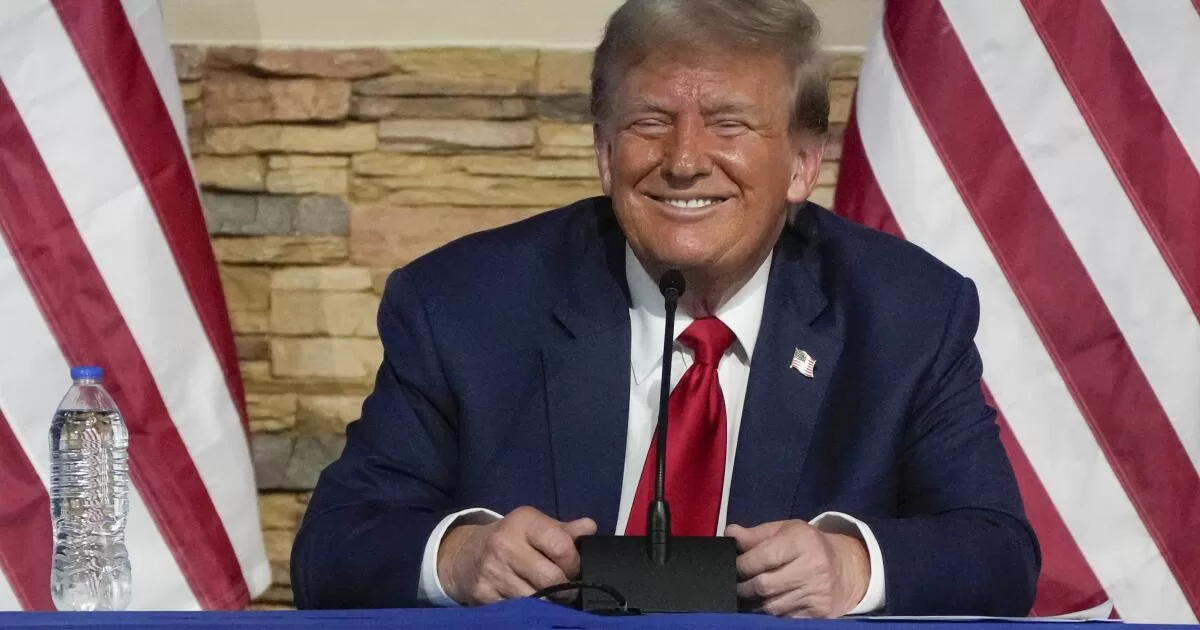Trump’s stated opposition to signing a nationwide ban on abortion and his reluctance to detail some of his views on the issue are at odds with many members of the evangelical movement, a key part of Trump’s base that’s expected to help him turn out voters in his November rematch with Democratic President Biden.
While Trump nominated three of the Supreme Court justices who overturned a federally guaranteed right to abortion, he has argued supporting a national ban would hurt Republicans politically. About two-thirds of Americans say abortion should generally be legal, according to polling last year by the Associated Press-NORC Center for Public Affairs Research.
Ralph Reed, the founder and chairman of the Faith & Freedom Coalition that Trump will address Saturday, said people in his movement would like to see a federal ban on abortion and want Republican elected officials to be “profiles in courage” who are “articulating their strongly held pro-life views.”
But, Reed said, Trump’s positions do not put him at risk of losing any of the deep support of evangelical voters who give him “more slack in the rope than they would likely give another politician.”
“I don’t think it’s going to hurt him at all because he’s got enormous credibility on this issue,” Reed said. “He did more for the pro-life and pro-family cause than any president we’ve ever had in the history of the movement.”
Attendees at the event on Saturday echoed that.
“I would prefer if he would sign a national ban,” said Jerri Dickinson, a 78-year-old retired social worker and Faith & Freedom member from New Jersey. “I understand though, that as in accordance with the Constitution, that decision should be left up to the states.”
Dickinson said she can’t stand the abortion law in her state, which does not set limits on the procedure based on gestational age. But she said outside of preferring a national ban, leaving the issue to the state “is the best alternative.”
John Pudner, a 59-year-old who recently started a Faith & Freedom chapter in his home state of Wisconsin, said members of the movement feel loyal to Trump but “we’d generally like him to be more pro-life.”
“I think a lot, you know, within the pro-life movement feel like, well, gosh, they’re kind of thinking he’s too far pro-choice,” he said. “But because they appreciate his Supreme Court justices, like that’s a positive within the pro-life community.”
According to AP VoteCast, a wide-ranging survey of the electorate, about 8 in 10 white evangelical Christian voters supported Trump in 2020, and nearly 4 in 10 Trump voters identified as white evangelical Christians. White evangelical Christians made up about 20% of the overall electorate that year.
Beyond just offering their own support in the general election, Reed’s group plans to help get out the vote for Trump and other Republicans, aiming to use volunteers and paid workers to knock on millions of doors in battleground states.
While he still takes credit for the reversal of Roe v. Wade, Trump has also warned abortion can be tricky politically for Republicans. For months he deferred questions about his position on a national ban.
Last year, when Trump addressed Reed’s group, he said there was “a vital role for the federal government in protecting unborn life” but didn’t offer any details beyond that.
In April of this year, Trump said he believed the issue should now be left to the states. He later stated in an interview that he would not sign a nationwide ban on abortion if it was passed by Congress. He has still declined to detail his position on women’s access to the abortion pill mifepristone.
In 2016, white evangelical Christians were initially reluctant to support Trump and suspicious of his image as a twice-divorced New York City tabloid celebrity who had at one point described himself as “very pro-choice.”
But his promises to appoint justices to the court that would overturn Roe, along with his decision in 2016 to name Mike Pence, an evangelical Christian, as his running mate, helped him gain the movement’s backing.
Several Republicans seen as potential running mates for Trump are also speaking at the conference, including New York Rep. Elise Stefanik, former presidential candidate and Trump Housing Secretary Ben Carson and Arizona Senate candidate Kari Lake. Stefanik and Carson are among the Republicans who received vetting paperwork from the Trump campaign in recent weeks.
Reed said members of his coalition are watching them closely and looking for Trump to pick someone who shares his views.
“We’re looking for somebody who will be a champion, a pro-family and pro-life and pro-Israel champion. And we’re looking for someone who has the ability to bring some new folks into the fold and act as an ambassador for our values,” he said.
Reed wouldn’t name any of the field as strongest or weakest, calling it “an embarrassment of riches.”
Later Saturday, Trump plans to hold an evening rally in Philadelphia.
Price writes for the Associated Press. AP writer Amelia Thomson DeVeaux contributed to this report.
